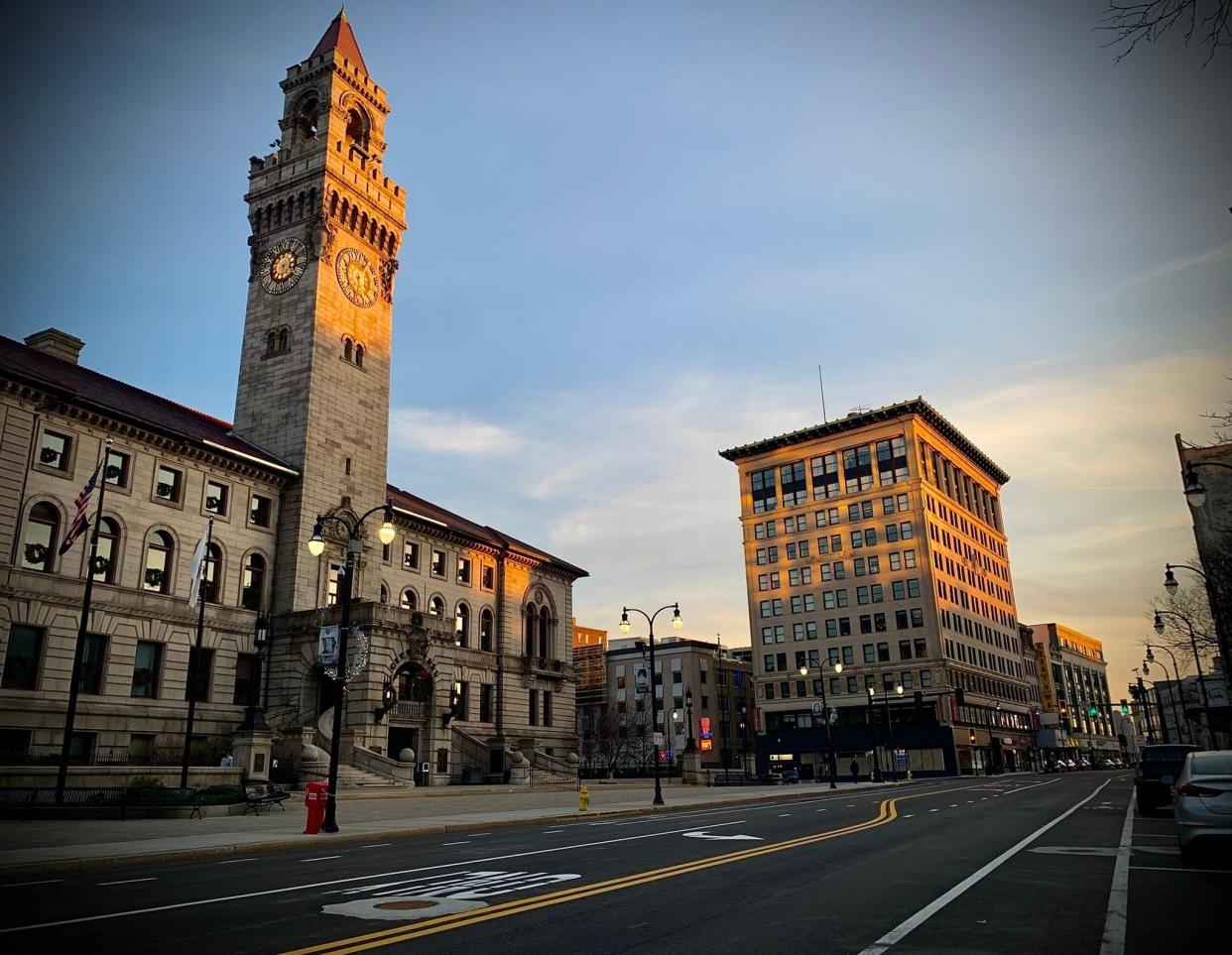Batista adopts faster building electrification code timeline favored by activists

WORCESTER — Following calls for faster action on Worcester adopting a new state building code that calls for electrification of new construction, City Manager Eric D. Batista adjusted his recommendation of the policy to speed up the effective date by six months.
The City Council initially received a policy recommendation that included an implementation date of Jan. 1, 2025, for the specialized stretch code. The implementation date was changed to July 1, 2024, the date several advocates called for at Tuesday's City Council meeting.
The policy recommendation was sent to the Economic Development Standing Committee. District 1 City Councilor Sean Rose, committee chariman, said he would work to make the July 1, 2024, implementation date feasible.
The code essentially requires electrification for new construction, both residential and commercial, instead of using fossil fuels for heating and other needs. In many cases, new construction that uses fossil fuels must be wired for a future switch to full electric in addition to having on-site solar where feasible.
More: What is the stretch code?
Communities must opt in to the code, which means a vote is needed by a city council or select board. Meeting a state law that requires Massachusetts to achieve net-zero carbon emissions by 2050 is the driving force behind the new code.
So far 18 communities have adopted the code, including Boston and Cambridge but none in Central Massachusetts.
John Odell, the city's chief sustainability officer, said in a letter attached to the council agenda that 65% of the city's total carbon emissions come from buildings.
Chamber weighs in
On Friday, the Worcester Regional Chamber of Commerce announced it supported the new code with the Jan. 1, 2025, implementation date in order for the many involved parties including the city, real estate developers and National Grid — Worcester’s electricity supplier — to fully understand the code.
Climate activists have called for no delay on implementing the new code with several interfaith leaders and other advocates speaking Tuesday in support of a faster timeline.
Several referenced disasters such as the deadly fires in Maui, dangerous heat levels in some parts of the country, flooding in Vermont and fires in Canada and Washington as examples of how climate change is impacting the country.
District 5 City Councilor Etel Haxhiaj, one of the biggest advocates for adopting the stretch code, said she was frustrated with how the chamber of commerce had framed the issue and said delaying the implementation would mean many buildings currently in the works would be exempt from the new code.
Haxhiaj said other municipalities with tech clusters have opted into the programs, that she did not believe concerns about a lack of inspectors was a valid reason to delay the measure, and that a cited projection of a bump in construction costs does not include savings the new code would provide and credits made available by the Inflation Reduction Act.
Haxhiaj: Don't delay
"Our home is actually burning and by delaying this we are saying we will shut down the fire by just throwing a cup of water," Haxhiaj said.
When asked by District 3 City Councilor George Russell why the city recommended a 2025 implementation date, Odell said the city believed a later date would be something the entire council would be supportive of and the extra time would be worth it so as not to split the council.
Odell said the later implementation date also allowed for the city to begin enforcing the new code with more staff who are ready to conduct inspections for compliance.
Councilor-at-Large Morris Bergman said he had an issue with the City Council saying things that cannot be backed up in order to please audience members and constituents. He said the city does not have the staff to monitor the new code at the current time and the time for budget allocations has passed.
'Unintended consequences'
Bergman said he also thought the city would benefit from seeing how the new code played out in other municipalities.
"All of us should well know no matter how long you served on the City Council, there is always with everything we do unintended consequences," Bergman said. "Things we don't think about when we decide to go ahead and do something and then all of a sudden we pause and we say, 'Oh boy. We should have thought about that.' "
Haxhiaj said she has been an advocate for the specialized stretch code to improve the future for children in the city.
"To assert that somehow we're doing this because we're trying to please people is offensive. It's unacceptable," Haxhiaj said.
Councilor-at-Large Khrystian King and District 2 City Councilor Candy Mero-Carlson said there is a need to bring in steelworkers and plumbers who could be affected by the code change into the conversation. King said that shifts in jobs can impact workers and families. King motioned for Batista to reach out to plumbers and steelworkers to learn how they are actively preparing for the changes.
King added he supported moving the date to July 1, 2024, and that the city should be more proactive.
"Worcester cannot continue to wait for these matters," King said. "We have to be more intentional in regards to how we move this city forward."
This article originally appeared on Telegram & Gazette: Worcester city manager adopts faster building electrification code timeline

